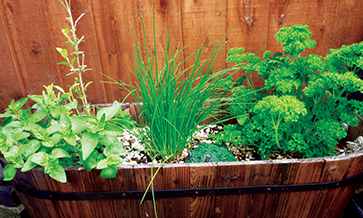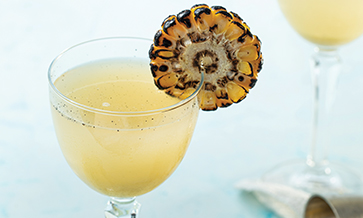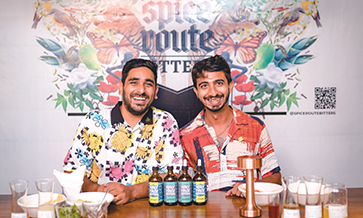Whether you are an avid, occasional, reluctant, social, or private drinker of spirits, you have no doubt been making hay as the sun shines brightly on India’s spirits industry. With smart innovation and reinvention, new entrants and well-established players have set a high bar for domestically-produced spirits, craft or otherwise.
As the spirits industry continues to grow in quality and depth, several complementary products and services are naturally finding more makers and takers. Cocktail culture is serious business and over the last few years, several new soda, tonic water and mixer brands have been launched.
Their success shows not just that more cocktails are being had in bars but also that consumers are stocking up on mixers and drink-aids at home too. If you are wondering about the term ‘drink-aid’, yes, I made it up!
Alcoholic bitters are certainly not new. Even in India, they have always been around in bars or perhaps in the home of an aficionado. But their star is on the rise now because bitters too function as a classic drink-aid: their addition can boost or balance cocktails, or simply spruce up a soda or tonic water as is.
Devil’s Bane
An alcoholic bitter is a concentrated spirit (usually grain, but could be any) that is infused with plant-based ingredients – typically roots, barks, spices and fruits. Originally meant to be medicinal, they eventually came to be used in cocktails to make rougher spirits of the time more palatable.
One old story tells the tale of a local priest in central Europe who used his own special blend of alcoholic bitters, with gentian and wormwood, to exorcise afflicted parishioners of evil spirits. It is said that these bitters were eventually used in a cocktail called the Devil’s Bane.
Of course, this story has never been independently verified and the search for the Devil’s Bane continues even today.
Many classic cocktails use alcoholic bitters: The Old Fashioned goes hand-in-glass with aromatic Angostura bitters while the Sazerac uses the more anise- forward Peychaud’s bitters.
Even a dry Martini can do well with a few dashes of a good bitter. Globally, some of the other known players in this space are Fee Brothers, Dashfire Bitters, and The Bitter Truth.
Against all the growing interest, imported Angostura bitters are still the only commercially available alcoholic bitters in India. The closest comparable products are some interesting non-alcoholic bitters that have recently been launched.
Indigenous contents
In the Indian context, the commercial non-availability of alcoholic bitters has more to do with excise duties than a market for them. Alcoholic bitters are subject to the same duties as spirits for consumption, even though bitters can only be had dash wise and not by itself.
This makes a 100-ml bottle as expensive as a 750-ml bottle of a spirit! For imported bitters, the addition of import duties makes it that much more expensive.
So far, imported alcoholic bitters, though expensive, were enough for bars to serve clients the classics. Many seasoned bartenders also make their own bitters for in-house use behind bars.
However, the growth in cocktails consumption, and indeed of bars in general, has created an interesting opportunity through a price vacuum for domestic alcoholic bitters.
Just as we witnessed with Indian gins, the abundance of local and indigenous herbs, roots, spices, fruits and flowers creates interesting avenues for exploration and innovation in alcoholic bitters. Not just for botanicals but dare one suggest a local spirit base that could be more duty efficient?
In any case, the coming times will see new players and products in the alcoholic bitters space in India. Those who have spent years perfecting home-made bitters recipes are now partnering with Indian bottling companies to commercialise their creations.
With the right product mix and a viable costing structure, they are betting on these alcoholic bitters becoming the next big drink-aid. For the rest of us avid observers and occasional drinkers, interesting times lie ahead!
India’s first
Underdog Tipple Distillers recently launched its range of Spice Route Bitters, India’s first licensed bitters, brining affordable alcoholic bitters to the Indian market.
Made entirely in Goa using locally sourced ingredients, long-time friends and collaborators, Subham Gupta and Dushyant Tanwar, have been working on these bitters for some years now.
Given Subham’s experience behind the bar and Dushyant’s expertise in alcohol beverage advocacy, they were able to recognise and address the need for quality, affordable bitters in India.
With the help of Kunal Patel, Director of Monika Alcobev, Subham and Dushyant licensed their proprietary recipes and bottled them as two variants: Aromatic and Gondhoraj. Both the variants, bottled in 200 ml at 42.8% ABV, are available in Goa for Rs 999 each and in Maharashtra for Rs 1,400 each.
The Aromatic variant embodies the essence of the spices that tie together different elements in a cocktail. Spice Route Gondhoraj is the ‘King of Smell’, says Dushyant.
For more details on the product, follow @spiceroutebitters on Instagram or write to spiceroutebitters@gmail.com.














